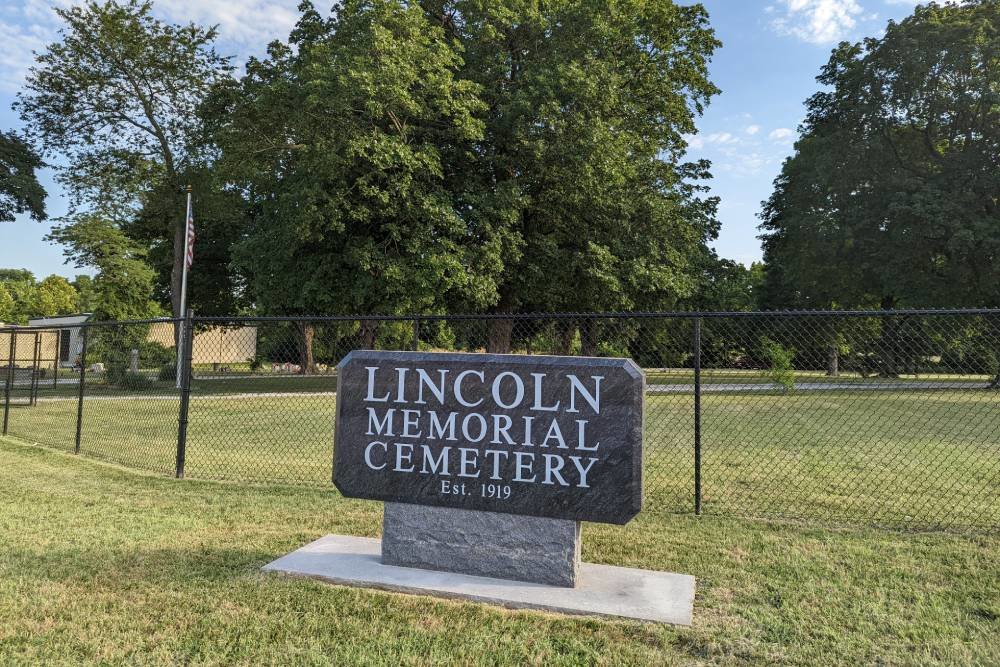YOUR BUSINESS AUTHORITY
Springfield, MO
YOUR BUSINESS AUTHORITY
Springfield, MO

The historic Lincoln Memorial Cemetery, part of the Springfield-Greene County African American Heritage Trail, applied for a share of the city’s federal COVID-19 relief funding, but it was not included in the list of recommended organizations at the July 11 Springfield City Council meeting.
However, at the request of council’s newest member, Monica Horton, the cemetery funding application was referred back to the committee, which still has $3 million left to allocate.
The cemetery’s board is requesting $100,000.
Horton suggested the omission of the cemetery, founded in 1919, was an oversight.
“I would think from time to time as City Council, as a governing body, that we would sometimes overlook things within a decision-making process; after all, we are human,” she said during an address to council.
But Horton said the cemetery was an obvious choice for funding. It has an operating plan, and the current board has maintained it for the past 10 years. Plus, its project is transformational, as it seeks to enhance dignity in death, she said.
“Members of the African American community have some of the highest infection rates and death rates from COVID-19 and have been disproportionately impacted by COVID in practically every quality-of-life indicator,” she said.
The funds would be used to replace the property’s entrance, restore fixtures, pave a gravel road, add trees and hedges, and enhance privacy, she said.
“The property is on the African American Heritage Trail, and it’s the place where just three weeks ago we watched one of our very own councilmen, Denny Whayne, be laid to rest,” Horton said.
The cemetery, located north of the intersection of Chestnut Expressway and Barnes Avenue, marked its centennial in 2019. Roughly 1,200 people are buried there. It dates from the Jim Crow era, when Black people’s graves were not permitted to be located alongside those of white people.
Horton’s comments were followed by public discussion on ARPA funding recommendations, with comments from stakeholders in organizations recommended for funding, plus one speaker, Michelle Herring, who was opposed to the use of federal funding for any of the projects. No one on council or among the speakers responded to Horton’s comments.
Horton said after the meeting, some council members she spoke with seemed to look favorably upon her request, and she was approached by City Manager Jason Gage, who said the matter would be returned to the ARPA Committee for further consideration.
“I’m optimistic, but also cautious,” she said. “You just don’t know until the final vote.”
Horton said that in the second week of her appointment, she was handed a 4-inch binder full of ARPA requests. She had previously been engaged with Greene County’s ARPA focus group. For the county, a component of the process was addressing disparities with underrepresented groups, particularly in terms of COVID-19’s health and economic impacts.
“I wanted to understand if the city had a similar process that the county was using,” she said.
While Horton was glad to see community input was sought, she noted 91% of survey respondents were white, and only 2% of survey respondents were Black.
“Other majority minority groups as well were in the single digits, though we represent the largest growing demographic over the last decade,” said Horton, who is Black. “That made me notice there was only one request from a minority-led and benefitting organization: Lincoln Memorial Cemetery.”
Horton said ARPA funds are a chance for the city to make lasting improvements in the city.
“When all ARPA funds here locally have been allocated, the city wants to say we’ve created an opportunity for people of color to benefit and for other marginalized people to benefit from federal and state funding to bounce back from COVID-19,” she said.
In a January letter to council, submitted with their application, cemetery board members Sheila Burton, president, and Eugene L. Johnson, vice president, wrote that the cemetery is an iconic symbol for the Black community in Springfield.
They noted the separation that was found in most cemeteries, where the graves of Black people were relegated to a fenced-off corner, separate from their white counterparts.
“It was a matter of dignity for Blacks to choose their final resting place instead of a last great insult from the white community,” they wrote.
The cemetery deteriorated in the years after its founding, even becoming a site for dumped refuse and garbage. Its frontage was taken over by the city through eminent domain during the widening of Chestnut Expressway, and a stone wall was taken as well. An entry gate was removed and never replaced.
They say volunteer labor and private donations have not been sufficient to restore the cemetery to the level it deserves.
“Where Springfield puts its resources says much about our values,” they wrote. “Helping preserve this iconic place, born because of racial discrimination, shows, even though belated, a sense of fairness and progress for our city.”
Moseley’s Discount Office Products was purchased; Side Chick opened in Branson; and the Springfield franchise store of NoBaked Cookie Dough changed ownership.